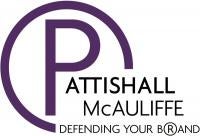Recently, the Trademark Trial and Appeal Board ("TTAB") issued a decision providing guidance on the proper way to plead a fraud claim under the new Bose standard. The case – DaimlerChrysler Corp. and Chrysler, LLC v. American Motors Corp., Canc. No. 92045099 (Jan. 14, 2010) – is the TTAB's first post-Bose decision to find a fraud claim to have been sufficiently pled. The DaimlerChrysler case also offers some interesting insights into the ability for fraud plaintiff's to obtain summary disposition of their claims.
The Bose decision made fraud claims both more difficult to prove and more difficult to plead, as the person asserting the fraud claim now must plead and prove the applicant's/registrant's intent to deceive. Since the Bose decision, the TTAB has struck down several attempts to assert fraud claims on the ground that they were not pled with sufficient particularity (as required by FRCP 9(b)). These cases generally involved pleadings that were based on "information and belief" without containing sufficient facts upon which the belief was founded, and that failed to contain allegations that the applicant's/registrant's statements were made with an intent to deceive. See Societe Cooperative Vigneronne des Grandes Caves Richon-Le-Zion and Zicron-Jacob Ltd. v. Albrecht-Piazza, LLC, Opposition No. 91190040 (TTAB Sept. 20, 2009) (denying motion to amend notice of opposition to assert insufficiently-pled fraud claim); Ayush Herbs, Inc. v. Hindustan Lever Ltd. Co., Opposition No. 91172885 (TTAB Nov. 19, 2009) (same); E & J Gallo Winery v. Quala S.A., Opposition No. 91186763 (TTAB Dec. 7, 2009) (same). See also Asian and Western Classics B.V. v. Selkow, 92 U.S.P.Q.2d 1478 (TTAB 2009) (fraud claims not sufficiently pled).
In DaimlerChrysler, however, the TTAB found that DaimlerChrysler laid out its fraud claims in sufficient detail to satisfy the requirements of FRCP 9(b). DaimlerChrysler's allegations included a recitation of the statements made by the registrant to the PTO that DaimlerChrysler contended were false, and the date those statements were made. DaimlerChrysler also included allegations to show the statements were false, which were supported by statements the registrant made in its discovery responses. With respect to intent, DaimlerChrysler's petition stated that these representations were made "to induce the PTO to issue a registration." Further the petition alleged that the registrant "knew that the representations were false," that the misrepresentations were "material", and that they were "knowingly made" in order to procure a registration.
The TTAB found that the combination of these statements was sufficient to plead a cause of action for fraud. Specifically, the Board held that the assertions "combining the references 'material misrepresentations' 'knowingly made' and 'to procure' a registration, constitute an allegation of respondent's intent." Although the Board found this method of pleading intent to be acceptable, it stated that the "preferred practice … is to specifically allege the adverse party's intent to deceive the USPTO, so that there is no question that this indispensable element has been pled."
The Board's decision provides a roadmap for proper pleading of a fraud claim, and guidance on the type of evidence that the Board will consider sufficient to prove a registrant's "intent to deceive".
Of particular significance is the Board's suggestion that reckless disregard for the truth of a statement to the PTO may be sufficient to show an intent to deceive. The Federal Circuit in the Bose decision had left open the question of whether a "reckless disregard for the truth" would satisfy the intent to deceive requirement. The Board appears to be saying that reckless disregard is a sufficient level of intent.
The original of this post and many other posts by Pattishall McAuliffe can be found on their Intellectual Property Information at Your Fingertips blog at: http://blog.pattishall.com/




 />i
/>i

